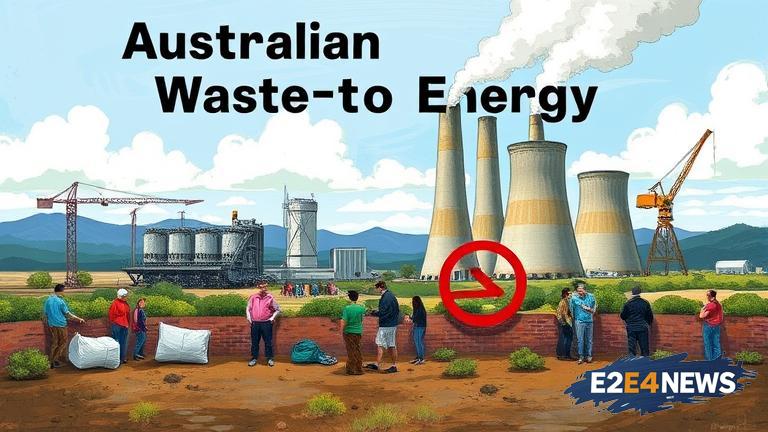The Parkes community in New South Wales, Australia, has come together to express their strong opposition to a proposed waste-to-energy incinerator in the area. The project, which aims to convert waste into energy, has been met with widespread criticism from local residents, who are concerned about the potential health and environmental impacts. The incinerator, which would be built by a private company, would burn thousands of tons of waste per year, releasing toxic pollutants into the air and potentially harming the local environment. Despite assurances from the company that the incinerator would be safe and environmentally friendly, many residents remain skeptical. They point to the lack of transparency and consultation from the company, as well as the potential risks to human health and the environment. The community has raised concerns about the impact of the incinerator on air and water quality, as well as the potential for toxic ash and other pollutants to be released into the environment. Local farmers are also worried about the potential impact on their livelihoods, as the incinerator could contaminate soil and water and harm crops. The Parkes community has a long history of environmental activism, and many residents are determined to fight against the incinerator proposal. They have organized protests, petitions, and community meetings to raise awareness and build opposition to the project. The local council has also been criticized for its handling of the proposal, with many residents feeling that they have not been adequately consulted or informed. The company behind the proposal has argued that the incinerator would provide a safe and efficient way to manage waste, but many residents are unconvinced. They point to the lack of evidence that the incinerator would be safe, as well as the potential for alternative and more sustainable waste management solutions. The debate over the incinerator has sparked a wider conversation about waste management and sustainability in the region. Many residents are calling for a more comprehensive and sustainable approach to waste management, one that prioritizes recycling, composting, and reducing waste. The Parkes community is not alone in their opposition to the incinerator, with other communities in the region also expressing concerns about the proposal. The issue has also sparked a wider debate about the role of government and industry in protecting the environment and public health. As the debate continues, it remains to be seen whether the incinerator proposal will be approved or rejected. One thing is certain, however: the Parkes community will continue to fight against the proposal, using every available means to protect their health, environment, and way of life. The community’s opposition to the incinerator is a testament to the power of grassroots activism and the importance of community engagement in environmental decision-making. The proposal has also highlighted the need for greater transparency and accountability in environmental decision-making, as well as the importance of prioritizing public health and environmental protection. In conclusion, the Parkes community’s opposition to the waste-to-energy incinerator is a significant development in the ongoing debate over waste management and sustainability in the region. As the community continues to fight against the proposal, it is likely that the issue will remain a major topic of discussion and controversy in the months and years to come.





